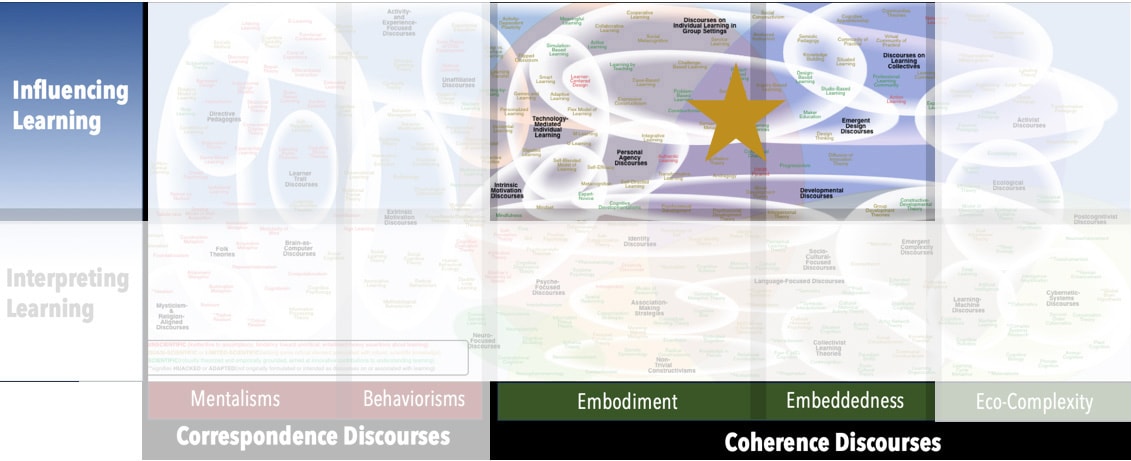Focus
Combining and co-amplifying curriculum-based learning and community servicePrincipal Metaphors
- Knowledge is … scope of possible action and interpretation
- Knowing is … meaningful action
- Learner is … an actor
- Learning is … making meaning while developing competencies
- Teaching is … coordinating
Originated
1960sSynopsis
Service-Learning is a form of Experiential Education in which curriculum-based learning foci are blended with community service. It is intended to afford greater opportunities for application of and reflection on personal learning while developing social awareness and helping to address societal needs. The hyphen in Service-Learning is important: it signifies that neither service nor learning should have priority over the other. With that point in mind, some off-the-mark variations of Service-Learning include:- Service-LEARNING (Robert Signon, 1990s) – learning goals are prioritized over service activities (e.g., students learn about a community practice mainly through observation)
- SERVICE-Learning (Robert Signon, 1990s) – service activities are prioritized over learning goals (e.g., students volunteer labor to a community agency)
- Service Learning (Robert Signon, 1990s) – learning goals are disconnected from service activities (e.g., students volunteer to a cause unconnected to academic studies)
Commentary
The most extreme critics of Service-Learning accuse it of being a veiled inculcation in communitarian (including socialist and/or communist) ideologies. Milder criticisms revolve around what some see as utopian ideals and impractical expectations. Some assert that Service-Learning has not demonstrated that the “learning” that happens is entirely consistent with the sort of learning that is expected or desired to happen.Authors and/or Prominent Influences
Robert SignmonStatus as a Theory of Learning
Service-Learning is not a theory of learning.Status as a Theory of Teaching
Service-Learning is certainly about influencing learning, but whether it might be considered a theory of teaching depends on one’s willingness to construe teaching in terms of a constellation of experiences rather than the focused acts of a person.Status as a Scientific Theory
There is a modest body of research around Service-Learning, but it is predominantly based on participant questionnaires. Published claims are thus quite predictable. For example, people link the effectiveness of their Service-Learning experiences with placement quality, duration, and reflection. They also tend to feel that the experiences strengthen their critical thinking. This pool of data notwithstanding, Service-Learning does not attempt to offer insight into the complex dynamics of learning, it is inattentive to its own assumptions on learning and ideology, and its evidence base is shallow.Subdiscourses:
- Service Learning
- Service-LEARNING
- SERVICE-Learning
Map Location

Please cite this article as:
Davis, B., & Francis, K. (2022). “Service-Learning” in Discourses on Learning in Education. https://learningdiscourses.com.
⇦ Back to Map
⇦ Back to List
